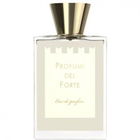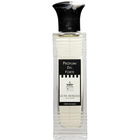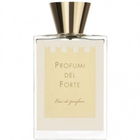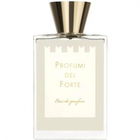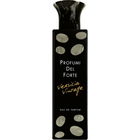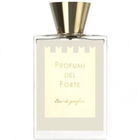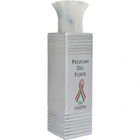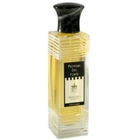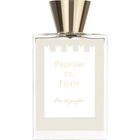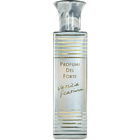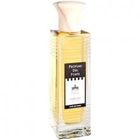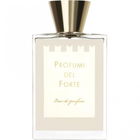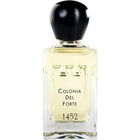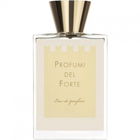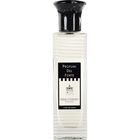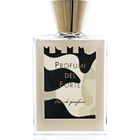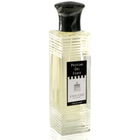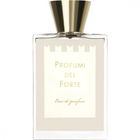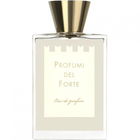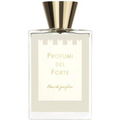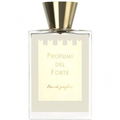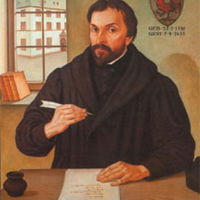
FvSpee
323 Reviews
Translated · Show original

FvSpee
Top Review
26
Neukölln 14: Towers
1265 is a strongly floral and vegetal scented, soft fragrance. It has a characteristically moderate longevity and sillage typical of colognes, but in terms of texture, it is more akin to a perfume.
I cannot discern a strong development of the scent within the two to three hours of longevity (even with generous application, it does not last longer). The top, heart, and base notes are perceived more as a synchronous layering rather than a temporal succession.
There is a finely balanced citrus note, where - unlike many colognes - bergamot and lemon do not take center stage. The citrus is not sour, not bitter, not zestily bitter, at most very subtly sweet (which it actually isn’t), most closely resembling a gentle neroli-orange, light and floral.
A floral bouquet emerges with equal strength to the citrus, in which I perceive the rose quite prominently, unlike others here, which usually bothers me in colognes (and, I admit, often otherwise as well). The strong floral accents, appearing tactile like moist, young petals, give 1265 an overall velvety, soft character.
However, the green notes, interestingly all slipped down into the base in the pyramid, come across to me more as chlorophyll-like, leafy, meadow-fresh rather than robust kitchen-herb-like, as I would expect from a classic cologne, which may also be attributed to the musk with its fluff effect. The supposedly present rosemary (an indispensable component of the traditional Farina scheme) is not detectable to me at all.
Overall, thus, a gentle, velvety-fine, somewhat overly refined cologne experience: fresh, yes, but the freshness is personally too pastel-like and lacks the hardness and contour I prefer. As a counterexample, consider EdC Impériale by Guerlain: also an infinitely refined, hyper-sophisticated scent, but crystalline like a snowflake; 1265 is more like the impressionistic painting of a summer landscape in morning mist.
The scent does not excite me as much as Yatagan, Mörderbiene, and others, but it is certainly beautiful. For a cologne, it is personally too perfumey for me; I see it like Lafleur, but I evaluate it differently. I tend to see 1265 more suited for a lady, and because it does not radiate the utilitarian splash-freshness of a typical cologne, it is usable year-round.
Profumi del Forte (roughly: Perfumes from the Fortress) is a brand founded in 2007 by the Italian perfumer-entrepreneur Enzo Torre. The company is based in Forte dei Marmi on the Tuscan coast. The name of the brand refers to that of the place (where a fortress of the same name stands). I interpret the crenellations on the bottles as a double reference, namely to the name of the place and to the surname of the perfumer ("Torre" means "tower").
The small town seems to be quite cosmopolitan; some super-rich individuals have had and still have their residences here, and Thomas Mann incorporated it into his novella "Mario and the Magician." I myself have never been to Forte dei Marmi, but I have been to Lucca, which is only about 30 km away, and for me, it is the most atypical of all Tuscan cities and, despite all respect for the many grand and small splendid cities of this region, the most charming.
The year 1265 stands for the birth year of the Italian poet Dante, to whom this fragrance is dedicated, although I cannot quite grasp the internal connection; the Torres website is limited to platitudes on this. The two other colognes from the house (currently all three are listed as "not available" in the online shop) are named 1452 and 1475, after the birth years of Leonardo da Vinci and Michelangelo Buonarroti, which at least indicates a solid self-confidence of the company founder.
The price for the cologne, if it were available, would be 98 euros for the 120-ml bottle, which I personally find too much. Paola, Queen of Belgium, would surely see it differently if she were to visit Forte dei Marmi, the place where she was born, again. In addition to the three colognes, the house also offers eleven Eau de Parfums.
I cannot discern a strong development of the scent within the two to three hours of longevity (even with generous application, it does not last longer). The top, heart, and base notes are perceived more as a synchronous layering rather than a temporal succession.
There is a finely balanced citrus note, where - unlike many colognes - bergamot and lemon do not take center stage. The citrus is not sour, not bitter, not zestily bitter, at most very subtly sweet (which it actually isn’t), most closely resembling a gentle neroli-orange, light and floral.
A floral bouquet emerges with equal strength to the citrus, in which I perceive the rose quite prominently, unlike others here, which usually bothers me in colognes (and, I admit, often otherwise as well). The strong floral accents, appearing tactile like moist, young petals, give 1265 an overall velvety, soft character.
However, the green notes, interestingly all slipped down into the base in the pyramid, come across to me more as chlorophyll-like, leafy, meadow-fresh rather than robust kitchen-herb-like, as I would expect from a classic cologne, which may also be attributed to the musk with its fluff effect. The supposedly present rosemary (an indispensable component of the traditional Farina scheme) is not detectable to me at all.
Overall, thus, a gentle, velvety-fine, somewhat overly refined cologne experience: fresh, yes, but the freshness is personally too pastel-like and lacks the hardness and contour I prefer. As a counterexample, consider EdC Impériale by Guerlain: also an infinitely refined, hyper-sophisticated scent, but crystalline like a snowflake; 1265 is more like the impressionistic painting of a summer landscape in morning mist.
The scent does not excite me as much as Yatagan, Mörderbiene, and others, but it is certainly beautiful. For a cologne, it is personally too perfumey for me; I see it like Lafleur, but I evaluate it differently. I tend to see 1265 more suited for a lady, and because it does not radiate the utilitarian splash-freshness of a typical cologne, it is usable year-round.
Profumi del Forte (roughly: Perfumes from the Fortress) is a brand founded in 2007 by the Italian perfumer-entrepreneur Enzo Torre. The company is based in Forte dei Marmi on the Tuscan coast. The name of the brand refers to that of the place (where a fortress of the same name stands). I interpret the crenellations on the bottles as a double reference, namely to the name of the place and to the surname of the perfumer ("Torre" means "tower").
The small town seems to be quite cosmopolitan; some super-rich individuals have had and still have their residences here, and Thomas Mann incorporated it into his novella "Mario and the Magician." I myself have never been to Forte dei Marmi, but I have been to Lucca, which is only about 30 km away, and for me, it is the most atypical of all Tuscan cities and, despite all respect for the many grand and small splendid cities of this region, the most charming.
The year 1265 stands for the birth year of the Italian poet Dante, to whom this fragrance is dedicated, although I cannot quite grasp the internal connection; the Torres website is limited to platitudes on this. The two other colognes from the house (currently all three are listed as "not available" in the online shop) are named 1452 and 1475, after the birth years of Leonardo da Vinci and Michelangelo Buonarroti, which at least indicates a solid self-confidence of the company founder.
The price for the cologne, if it were available, would be 98 euros for the 120-ml bottle, which I personally find too much. Paola, Queen of Belgium, would surely see it differently if she were to visit Forte dei Marmi, the place where she was born, again. In addition to the three colognes, the house also offers eleven Eau de Parfums.
18 Comments





 Top Notes
Top Notes  Petitgrain
Petitgrain Bergamot
Bergamot Lemon
Lemon Orange
Orange Heart Notes
Heart Notes  Neroli
Neroli Lavender
Lavender Heliotrope
Heliotrope Rose
Rose Base Notes
Base Notes  Musk
Musk Oakmoss
Oakmoss Rosemary
Rosemary Thyme
Thyme


 Gold
Gold Mörderbiene
Mörderbiene Yatagan
Yatagan SirLancelot
SirLancelot Einfachich
Einfachich MichH
MichH Neptuna
Neptuna Jennytammy
Jennytammy Sommer2014
Sommer2014